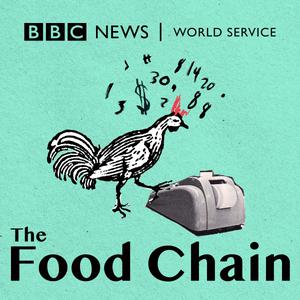
The Food Chain
BBC World Service
The Food Chain examines the business, science and cultural significance of food, and what it takes to put food on your plate.
- 28 minutes 12 secondsCrunch!
Why do we enjoy foods that crunch?
Listener Sheila Harris contacted The Food Chain with that question and asked us to find out if the food texture has any benefits.
Ruth Alexander speaks to Danielle Reed, Chief Science Officer at the Monell Chemical Senses Center in Philadelphia, US, who says that crunchy foods signal freshness and help our brains decide if a food is safe to eat.
Paediatric dentist Ashley Lerman in New York, US says crunchy fruit and vegetables can act as a natural tooth cleaner.
Anthropologist Professor Noreen von Cramon-Taubadel at the University at Buffalo in New York, US says that the texture of our diets can impact the shape of our faces. Her work has studied how jaw shape has changed as humans switched from hunter gatherer to farming diets.
Ciarán Forde, Professor of Sensory Science and Eating Behaviour at Wageningen University in the Netherlands explains how crunchy and other hard textures could help us to eat more slowly and consume fewer calories.
And could crunch make foods more palatable? Chef Dulsie Fadzai Mudekwa in Zimbabwe says the texture is key to convincing people to try edible insects.
If you have a question for The Food Chain email [email protected]
Produced by Beatrice Pickup.
(Image: a woman biting a stick of celery. Credit: Getty Images/BBC)
30 January 2025, 12:00 am - 26 minutes 28 secondsIs anyone following dietary guidelines?
Around 100 countries have official dietary guidelines, and more are on their way. But who is following them?
Ruth Alexander asks how realistic healthy-eating advice is as she explores how official recommendations are developed, what they’re trying to achieve, and the obstacles standing in our way.
We hear from Fatima Hachem, Senior Nutrition Officer at the United Nation’s Food and Agriculture Organisation, about how her team offers support to countries designing dietary guidelines.
Chiza Kunwenda, senior lecturer in the Department of Food Science and Nutrition at the University of Zambia, tells us how he and a team of others drew up the latest dietary guidelines for Zambia and other countries in Africa.
In Argentina, as well as advice, the government has issued black octagonal warning labels on foods high in salt sugar, saturated fats and calories. Are people taking notice?
And can people around the world afford to eat according to guidelines? Dr Anna Herforth co-directed the Food prices for Nutrition project at Tufts University in the United States, tells us what she found. We also hear from shoppers at a community food outlet in the North West of England, about how cost is barrier to healthy eating.
(Image: a plate of food showing suggested dietary guidelines. Credit: Getty Images/BBC)
If you’d like to contact the programme, email [email protected].
Producers: Hannah Bewley and Izzy Greenfield.
23 January 2025, 1:00 am - 29 minutes 48 secondsShould we eat less rice?
Rice is the main staple for over half the world’s population.
The crop has problems though – it is vulnerable to climate change, whether that’s drought or flooding. It’s also a crop that contributes to climate change, as it uses more water than other grain crops and is frequently grown in flooded conditions. Rice production is also a big source of methane emissions.
In this programme Ruth Alexander hears about the possible solutions to these problems. Dr Yvonne Pinto, Director General of the International Rice Research Institute in the Philippines talks about their work developing new varieties of rice, and new more sustainable farming techniques.
One rice company trialling these techniques is Tilda in the UK. General Manager Jean-Philippe Laborde explains what difference it’s made to water and fertiliser use as well as methane emissions.
Given the problems with rice, should we just eat less of it?
Jakob Klein, anthropologist at SOAS University of London explains the Chinese government’s attempts to convince people to eat more potato as a staple food.
And we talk about the cultural importance of rice with listeners in the Philippines and Bangladesh.
If you’d like to contact the programme email [email protected]
Presented by Ruth Alexander.
Produced by Beatrice Pickup.
(Image: a steaming bowl of rice with chopsticks above it holding a mouthful of white rice grains. Credit: Getty Images/BBC)
16 January 2025, 12:00 am - 29 minutes 7 secondsWhat's the point of cookbooks?
When there are so many recipes available for free online, why does anyone still buy cookbooks?
In this programme we look into the business of selling cookbooks, what future the format may have and hear about the treasured tomes you turn to time and time again.
Ruth Alexander visits Books for Cooks, a specialist cookbook shop in London, to chat to Eric Treuille who cooks lunch for his customers from a different cookbook each day.
She speaks to cookbook writers Mogau Seshoene in South Africa, author of ‘The Lazy Makoti’ books, and Joanne Molinaro in the US, author of ‘The Korean Vegan’.
Doris Cooper tells Ruth what a publisher is looking for in a cookbook. She tells Ruth about her big hits and misses as editor-in-chief of Simon Element, a division of Simon and Schuster in New York.
And listeners in Italy, Malta and the US tell us about their favourite cookbooks.
If you would like to contact the programme email [email protected].
Presented by Ruth Alexander.
Produced by Beatrice Pickup.
(Image: Ruth Alexander with her grandmother’s cookbook, which still holds her handwritten pastry recipe. Credit: BBC)
9 January 2025, 12:00 am - 26 minutes 29 secondsHas Christmas food gone mad?
Prosecco flavoured crisps? Eggnog chicken? Sticky toffee pudding trifle?
The innovation for novelty Christmas products seems endless, but is there the appetite?
Ruth Alexander lifts the lid on an industry churning out festive food hits, and flops, in the race for Christmas tastebuds.
She visits the Good Housekeeping Institute in London to take part in an opulent dessert testing event, deciding which puddings are the best on the shelves this year.
Eric Nummelin and Mike Vahabi from Hela Spice in Toronto, Canada, reveal the wacky inventions they have come up with for this year, and how inspiration can strike at any time.
A former buyer for a large European supermarket chain talks about how to “win” Christmas with headline-grabbing products, and what happens when shoppers try things once and don’t go back for more.
If you would like to get in touch with the show, please email: [email protected]
Presenter: Ruth Alexander
Producer: Hannah Bewley
(Image: Colourful Christmas treats and biscuits. Credit: Getty Images/BBC)
19 December 2024, 12:00 am - 26 minutes 28 secondsStadium food
Which food do you associate with your favourite sport?
Pie and chips at an English football match, biriyanis at the cricket in Pakistan or grilling meat in the parking lot outside an American football game – there are some tasty traditions which go hand-in-hand with sport across the world.
Ruth Alexander hears how a traditional rice dish can bring two rival nations together over a game of cricket, and how a disappointing sausage roll before a football game led one man on a country-wide quest for better food for fans.
Over a pile of warming chips on a frosty night in South Manchester, Ruth discovers how getting the food right off the pitch might help a team’s fortune improve on the pitch.
If you would like to get in touch with the show, please email: [email protected]
Presenter: Ruth Alexander
Producer: Hannah Bewley
Additional reporting: Ben Derico
(Image: a box of chips with gravy and curry sauce held beside a football pitch. Credit: BBC)
12 December 2024, 12:00 am - 26 minutes 28 secondsCroffle, anyone?
Crookie, anyone? Cronut, croffle?
Ruth Alexander looks at the rise of the dessert café and the extraordinary creations it’s spawned.
She visits one such café in Manchester with roses adorning the walls, and chocolate adorning almost everything else.
And speaks to a food blogger in Dubai and a café owner in USA about the latest trends and the businesses who have been serving puddings for decades.
Find out what the latest fashions are in dessert, and how quickly a new invention can sweep the world.
Going out for pudding has become the thing to do in many places and the more extravagant your order, the better.
In fact, going out for pudding has never been so fashionable – or has it?
Presenter: Ruth Alexander
Producers: Rumella Dasgupta and Hannah Bewley
(Image: A selection of sweet desserts. Credit: BBC)
5 December 2024, 12:00 am - 26 minutes 27 secondsHow did fast food become so successful?
From America to Mongolia, you can go into a restaurant run by a global fast-food chain, and buy the same meal. So how did fast food become so successful?
Across the world, last year we spent more than 900 billion dollars on fast food. The USA, where it all began, consumes the most, but even in France, despite its history of haute cuisine, more than half of households regularly enjoy burgers and fries.
Julia Paul learns about its origins in the USA, and hears how it spread globally, thanks to the franchise model. She speaks to a superfan who’s eaten at one chain in 25 countries.
Critics say global brands shipping food around the world is bad for the environment and for local economies. There are some places where some brands have failed, and some where they haven’t even opened yet. Julia hears how local burgers, and the worldwide recession, saw off McDonalds in Iceland, and speaks to a Nigerian female chef who’s competing to offer fast local food in Lagos.
If you would like to get in touch with the programme, email [email protected].
Presented and produced by Julia Paul.
(Image: A large burger. Credit: Getty Images/BBC)
28 November 2024, 12:00 am - 28 minutes 56 secondsWe are 10!
We are celebrating 10 years of The Food Chain with some of our favourite programme moments from the past decade.
Fishing to stay alive, chopping onions in remembrance, and tasting people’s names – these stories and more tell us something about our relationship with food and how it helps us connect with one another.
If you would like to get in touch with the show, please email: [email protected]
Presenter: Ruth Alexander
(Image: A chocolate birthday cake with number 10 candles on top. Credit: Getty Images)
21 November 2024, 12:01 am - 26 minutes 28 secondsJust vanilla
Dull? Boring? Plain?
Vanilla is a byword for something which is ordinary or standard.
In this programme Ruth Alexander finds the story of the popular spice is anything but normal.
Originating in Mexico it’s travelled the globe and taken over, and is now one of the most valuable commodities available.
It’s gone from being highly sought after and the height of luxury – even serving as an aphrodisiac for Mesoamericans and a European monarch - to ubiquitous and considered “regular”.
Despite its reputation there is still a lot to appreciate about this complex flavour, and fans in one ice cream parlour are keen to make sure it isn’t overlooked.
Presenter: Ruth Alexander
Producers: Nina Pullman and Hannah Bewley
(Image: A vanilla bean and flower. Credit: Getty Images)
14 November 2024, 12:00 am - 29 minutes 8 secondsHow work changed lunch
How do our work habits shape what we eat?
In this programme Izzy Greenfield discovers the history of the workplace lunch and the ways in which society has reshaped it.
Historian Megan Elias of Boston University in the US explains how lunches have evolved from the factories of the 19th century Industrial Revolution to sandwiches eaten at the desk in 20th century offices.
Izzy visits an office and co-working space in Manchester, run by Department, a company that operates office spaces in the North of England. Abigail Gunning, Operations Director, explains why it makes sense for the company to open the building’s cafe and restaurant to the public as well as staff.
And how does workplace food impact our health? Olivia Beck, registered nutritionist at Food Choices at Work in Cork, Ireland, explains why it’s in employers’ interests to create a healthy food environment for all staff, whether in the office or at home.
If you’d like to contact the programme you can email [email protected]
Presented by Izzy Greenfield.
Produced by Beatrice Pickup.
Additional reporting by James Jackson.
(Image: a man eating a burger with a glass of juice at his desk in front of a computer screen. Credit: Getty Images/BBC)
7 November 2024, 12:00 am - More Episodes? Get the App
Your feedback is valuable to us. Should you encounter any bugs, glitches, lack of functionality or other problems, please email us on [email protected] or join Moon.FM Telegram Group where you can talk directly to the dev team who are happy to answer any queries.
 CrowdScience
CrowdScience
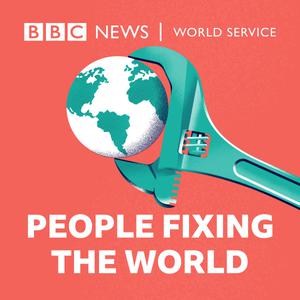 People Fixing the World
People Fixing the World
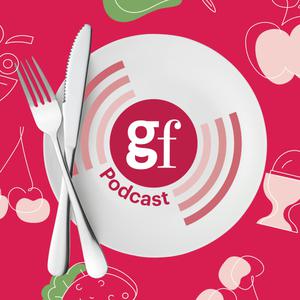 Good Food
Good Food
 Health Check
Health Check
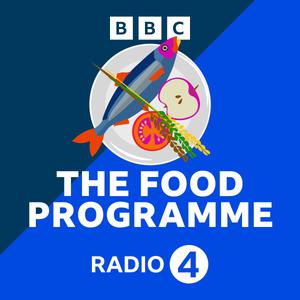 The Food Programme
The Food Programme
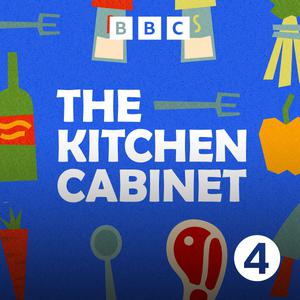 The Kitchen Cabinet
The Kitchen Cabinet